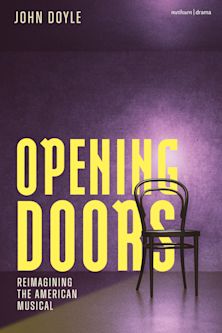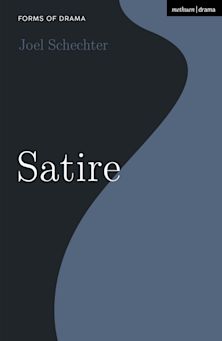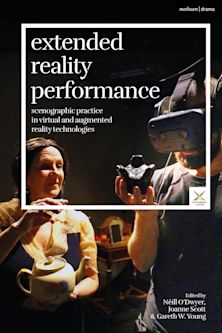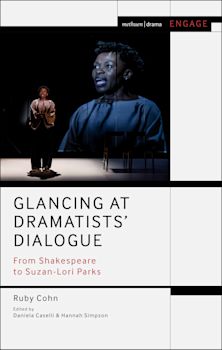- Home
- ACADEMIC
- Drama & Performance Studies
- Theatre History and Criticism
- Ten Ways of Thinking About Samuel Beckett
Ten Ways of Thinking About Samuel Beckett
The Falsetto of Reason
Ten Ways of Thinking About Samuel Beckett
The Falsetto of Reason
You must sign in to add this item to your wishlist. Please sign in or create an account
Description
Beckett is acknowledged as one of the greatest playwrights and most innovative fiction writers of the twentieth century with an international appeal that bridges both general and more specialist readers. This collection of essays by renowned Beckett scholar Enoch Brater offers a delightfully original, playful and intriguing series of approaches to Beckett's drama, fiction and poetry.
Beginning with a chapter entitled 'Things to Ponder While Waiting for Godot', each essay deftly illuminates aspects of Beckett's thinking and craft, making astute and often surprising discoveries along the way. In a series of beguiling discussions such as 'From Dada to Didi: Beckett and the Art of His Century', 'Beckett's Devious Interventions, or Fun with Cube Roots' and 'The Seated Figure on Beckett's Stage', Brater proves the perfect companion and commentator on Beckett's work, helping readers to approach it with fresh eyes and a renewed sense of the author's unique aesthetic.
'An eloquent, witty and erudite collection of essays that illuminates Beckett's drama and prose fiction from a number of complementary perspectives. Brater's precise explication of the interwoven tropes of language and mise-en-scène is combined with a fine grasp of the overarching structure of work ... to create a rich and suggestive series of reflections on Beckett's aesthetics.' - Robert Gordon, Professor of Drama, Goldsmiths, University of London
Table of Contents
1. Things to Ponder while Waiting for Godot
2. From Dada to Didi: Beckett and the Art of His Century
3. Beckett's Landscape: What There Is to Recognize
4. Beckett's Shades of the Color Gray
5. The Seated Figure on Beckett's Stage
6. Beckett's Devious Interventions, or Fun with Cube Roots
7. Beckett's-What?-Romanticism
8. Beckett's Beckett: So Many Words for Silence
9. "Traces blurs signs": Where Beckett Meets Ibsen
10. Suitcases, Sand and Dry Goods
Addendum To What?: The No-Thing that Knows No Name and the Empty Envelope Blissfully Reconsidered
Product details

| Published | 13 Jun 2013 |
|---|---|
| Format | Ebook (Epub & Mobi) |
| Edition | 1st |
| Extent | 208 |
| ISBN | 9781408137239 |
| Imprint | Methuen Drama |
| Illustrations | N/A |
| Series | Diaries, Letters and Essays |
| Publisher | Bloomsbury Publishing |
About the contributors
Reviews
-
'Those who are still intimidated by Beckett's reputation should read Enoch Brater's witty, stimulating, brilliantly discursive reflections on his work. They'll end up finding both the writer and the critic far more entertaining than they dared suspect.'
Benedict Nightingale
-
'An eloquent, witty and erudite collection of essays that illuminates Beckett's drama and prose fiction from a number of complementary perspectives. Brater's precise explication of the interwoven tropes of language and mise-en-scène is combined with a fine grasp of the overarching structure of work in various genres and media to create a rich and suggestive series of reflections on Beckett's aesthetics.'
Robert Gordon, Professor of Drama and Director of the Pinter Centre for Performance and Creative Writing, Goldsmiths, University of London
-
'Some students find Beckett intimidating, but Enoch Brater's essays are anything but. Ten Ways of Thinking About Samuel Beckett is both witty and approachable...There is a great deal of intelligent analysis here to enlighten anyone working on Beckett, and none of it is too abstruse.'
The Stage, June 2011
-
A series of meditations, a return to first principles and a pushing forward into new syntheses, new ways of thinking, particularly about the art of Samuel Beckett. It is, thus, both a book for beginners, since one always returns to first principles, and one for seasoned readers of Beckett, who are rewarded by those frequent references and allusions to Beckett's work that draw knowing nods from the cognoscenti...One can only hope that such musings, such “speaking correctly,” such deliberations on Beckett as the current book displays, are not a valediction.
S.E. Gontarski, Florida State University, Modern Drama

ONLINE RESOURCES
Bloomsbury Collections
This book is available on Bloomsbury Collections where your library has access.



































